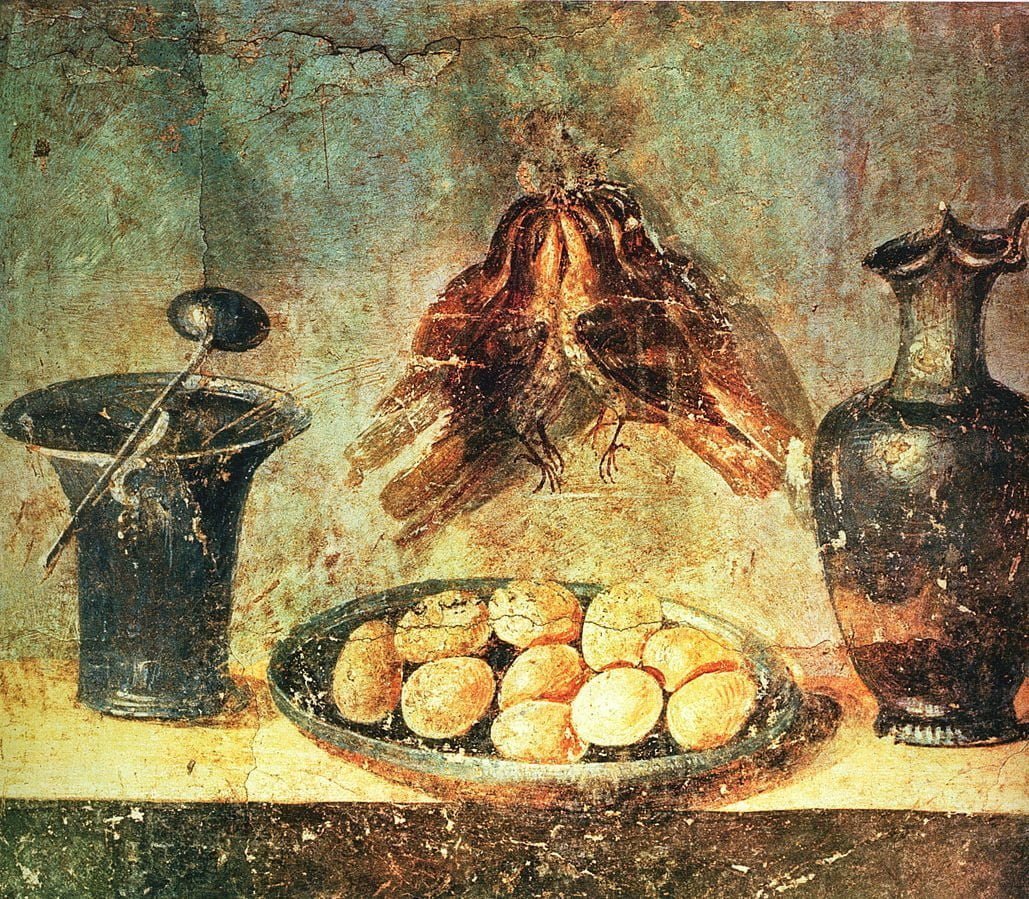Chapters
Feasts of Lucullus are one of the most characteristic topics related to the culture of ancient Rome. However, they could not take place without the most important and most closely related spice – black pepper. It was used as a medicine for all diseases, spices and currencies.
The origins
The history of pepper use is definitely older than the Roman civilization. Already 4000 years ago it was a very important export commodity of the Indian subcontinent. However, the oldest evidence for human use of this plant is related to the culture of Hoà Bình (Vietnam) – 7000 BCE and the oldest records of black pepper trade come from India from 400 BCE. Fragments of black pepper, which were found in the mummy of Ramses II (this pharaoh died in 1213 BCE) are considered the oldest trace of the use of black pepper.
The Romans got their first pepper samples after conquering Syria and Asia Minor. Until the time of Octavian Augustus (63 BCE – 14 CE), luxury products originating in India were transported to Rome via Arabs and Egyptians. The most important goods from this country were: Indian tigers, parrots, pearls, ginger, cinnamon and just pepper
The secret to travelling to India
The key to direct import of pepper from India turned out to be a Greek trader living in Egypt – Hippalus. He knew the secrets of the sea route to the Malabar coast (modern Kerala), and estimated that the return trip could take less than a year (until now pepper was transported by camel by sea). The key to such a fast trip to India turned out to be the use of winds – monsoons.
Hippalis’ first journey took place in 45 or 47 CE. Initially, journeys began at Ocelum and ended at Muziris. In the times of Plinius the Elder (23 CE-79 CE), due to a pirate plague, the destination was changed to Nelcynda. Ships began sailing from the port of Egypt in early summer and thanks to the successful winds they reached India in 40 days. After the exchange of goods in December or early January, the return journey began. Also, in this case, the most important was the wind pattern: the northeast monsoon (called by Plinius Volturnus), and the southeastern, occurring in the Red Sea. Most often, a one-way trip from Italy to the port of Malabar lasted about 114 days. However, not every trip was successful. One of the travellers – Eudoxos, according to Piliniusz, under the influence of winds, sailed around Africa and sailed to Spain! Vasco da Gama officially accomplished this feat in 1498. A similar situation occurred in the case of Diogenes, but he landed in central Africa.
Changes in economics
Thanks to these discoveries, the price of pepper has dropped significantly, and this spice ceased to be considered a luxury product. In the days of Plinius the Elder (23 CE-79 CE), black pepper (peperi) libra cost 1 denar, white 7 denari, and long (peperi macron) 15 denari (1 pound Roman = 323 g; 1 denarius corresponds to 15.3 g of silver). The new, lower price caused that this spice soon became the most important vegetable raw material that was imported from outside the empire.
During the time of Emperor Domitian (51-96 CE), special public warehouses were built in Rome for storing pepper and other spices. It was called horrea piperataria. In these rooms, pepper was ground in special mills (molae piperatariae) or mortars and then sold in papyrus bags on Vicus unguentarius – the street where aromatic raw materials, medicines and perfumes were traded. Other places of trade for this precious resource were: Via Sacra and Vicus Turarius; the sellers were called Seplassiari or Unguentarii.
Not just spice
In the most famous antiquary cookbook – De re coquinaria libri decem (on the culinary art of the books ten next to honey, bay leaves and coriander, pepper was the most important spice (it was present in over 80% of recipes). For some of these recipes include: Pullum Numidicum (Numidian chicken), Pullus Vardanus (chicken a la Warus), or Porcellum Flaccianum (piglet a la Flakkus).
Roman botanist and doctor of Greek origin, living in the times of Nero – Pedanios Dioscorides (40-90 CE) is the author of the most important book on herbal medicine of ancient times – De materia medica (on medicinal raw materials). It contained information that white pepper is perfect for treating eye diseases, snake bites, or preparing antidotes. Black pepper, according to the said author, was to serve as a diuretic, treating pharyngitis, warming and antipyretic. In addition, he noticed that the best taste is black pepper and is best suited to making sauces.









